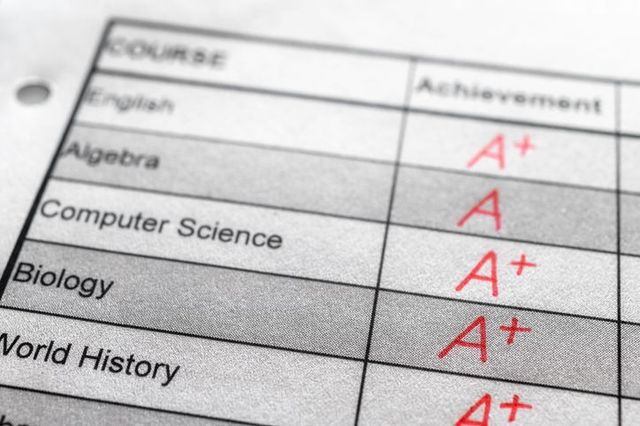
UNIVERSITY APPLICATION.
Although they are merely two simple words, they can carry a weight of insurmountable stress, a lost path, or even months of existential crisis!

During grade 10, as a desperate and highly confused high schooler, I spent hours reading blogs that promised the ‘ultimate way to get into your dream university’. However, I closed the blogs at the research’s end, feeling even more lost and overwhelmed than before.
If you ever felt the same reading statements:
“You need a Spike” or “Volunteer hours are not important; it’s the quality that matters.”
With ZERO description of HOW, you are in the right place!
I’ll walk you through how to get into a good university together!
(1) GRADES GRADES GRADES
If you have read articles, blogs, websites or what so ever that say “grades are not important”, you might as well close the tab because that is not the full truth.
Let’s make this ultra-clear: if you are aiming for any prestigious university, whether it’s the Ivy League or UBC,
YOUR GRADES MATTER!

When university administrators and experts tell you,
“Universities also look at extracurriculars and the personality students portraits,”
They are not saying universities don’t look at grades. What they are ACTUALLY SAYING is that GRADES are something that students should have AS A BASE!
But now you might question what a good grade is.
![]()
A: It naturally depends on where your dream school is and what program you select. The best way to figure out generally what grade range you must be in is to
- Talk to current students of the university
- Find the general grade average of admission (some school provides it) for the school’s program
What you SHOULDN’T DO:

- Look at the minimum grade base for university
Ex) UBC formerly said that to apply to UBC they must be 70%. This does not mean you need 70% to get in! Like the statement says, 70% to be ABLE TO APPLY! The reality is that UBC requires at least a 90% average to be in the competitive zone!
- Looking at SPECIFIC CASES!
Although I said grades are the foundation of your application, there are cases when students get in with a lower grade than the average. These are cases where the student’s extracurriculars override the grade average. In cases where students make National or international achievements, like being a national-level athlete. Most of us are not, so let’s exclude these cases.
HOW TO GET GOOD GRADES?!?
YES, we understand grades are important! But HOW DO WE GET GOOD GRADES

Now I can’t give you the right answer, because the right method of study always varies between people, but I can give GENERAL TIPS:
- TAKE EASY COURSE

The difficulty, of course, varies deeply for each school, depending on your ability in the subject and the teachers.
DO RESEARCH WITHIN SCHOOL TO FIND CLASSES WITH GOOD TEACHERS!
If you are stuck between choosing History or Law, ask your peers who have taken the course before, and listen to the gossip about the course and teachers.
If your prerequisite courses provided in school are with a teacher known to give no As, then find a replacement, like online courses or summer school.
It may sound stupid, even pathetic, BUT trust me, teachers are the element of how the course turns out for you.
2. ASK QUESTIONS
 When I say questions,
When I say questions,
I’m not only talking about questions on the course material you don’t understand–don’t get me wrong, that’s also important–but questions on any projects, tests, or additional work.
Ask questions on a project outline if it doesn’t make sense, ask questions about test questions you don’t understand or even ask to check how you progress for assignments from time to time.
You might feel like you have to figure it out independently or think the teacher will think you are stupid, but they will not. You will likely hear extra tips or the standard they mark on that you can keep in mind while showing your commitment and efforts in class.
3. FIND YOUR STUDY METHOD
Students can study for 10 hours to get the same result as students who spend an hour.
It’s all about HOW EFFECTIVELY YOU STUDY AND HOW MUCH YOU KNOW YOURSELF!
I will discuss more about study tips specific to each subject and find the best study method in upcoming posts, so subscribe for notifications!
(2) EXTRACURRICULARS
Now that we have made a foundation with your strong academics, we give ourselves personality with our extracurriculars.
Many students who seek extracurriculars face confusion about what is a GOOD EXTRACURRICULAR AND WHAT THEY MUST DO
Well, I can’t stress enough that you don’t have to be good at everything, you don’t need to have 10 or 20 on your list, and you don’t need to follow the trend of joining a band or basketball team because many students do so.
In reality, HAVING 5-6 STRONG ONES ARE BETTER THAN HAVING 20 OF EVERYONE DO ACTIVITIES.
So THEN WHAT EXTRACURRICULAR SHOULD I CHOOSE?

To find your fit, you must consider the following:
- What is your major?
Out of the 5-6 extracurriculars, you should have at least 2 related to your major. This will help you greatly connect your extracurriculars to your application.
For example
For science majors, volunteer at a pharmacy or hospital, make a science-related club, join a competition, join a camp, etc
For business majors, join business competitions, entrepreneurship competitions, and even run your own business
It doesn’t have to be the listed activity, but explore options laid out with your counsellors or online
2. Leadership Roles
Most prestigious universities want to produce global leaders, meaning they look highly at leadership activity. This does not mean you have to be part of the student council for four years; you can be a leader of a club, a leader within a band or even within a small community event. You could even develop a self-run project if you can’t find one.
Applying to University can be hard and confusing.
It may feel like there is no RIGHT ANSWER. And maybe there isn’t. However, there are tips and formulas you can acquire to go through this period!
This post has got quite long, thanks for keeping up!
This is only my part one of TIPS ON UNIVERISTY APPLICATION
I will continue with my tips in the next post, so keep up and subscribe!

sources:
- Outreach Magazine. “Don’t Carry the Weight of Ministry Alone.” Outreach Magazine. Accessed February 7, 2025. https://outreachmagazine.com/features/leadership/71011-dont-carry-the-weight-of-ministry-alone.html.
- Hess, Abigail. “The 10 Best Universities in the World.” CNBC, October 24, 2017. Accessed February 7, 2025. https://www.cnbc.com/2017/10/24/the-10-best-universities-in-the-world.html.
- Fordham Institute. “Should Schools Adopt ‘Equitable’ Grading Practices? This Teacher Voices His Concerns.” Thomas B. Fordham Institute. Accessed February 7, 2025. https://fordhaminstitute.org/national/commentary/should-schools-adopt-equitable-grading-practices-teacher-voices-his-concerns.
- 3DOcean. “Emoji Surprised.” 3DOcean. Accessed February 7, 2025. https://3docean.net/item/emoji-surprised/18564179.
- iStock. “Red X Illustrations.” iStock. Accessed February 7, 2025. https://www.istockphoto.com/illustrations/red-x.
- iStock. “Easy Peasy Photos.” iStock. Accessed February 7, 2025. https://www.istockphoto.com/photos/easy-peasy.
- Make a Meme. “Just Ask.” Make a Meme. Accessed February 7, 2025. https://makeameme.org/meme/just-ask-b66baa1d1c.
- Tenor. “Tell Me GIFs.” Tenor. Accessed February 7, 2025. https://tenor.com/search/tell-me-gifs.
